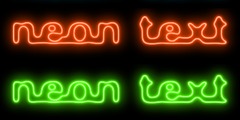Colorizing a B&W image
This discussion is connected to the gimp-user-list.gnome.org mailing list which is provided by the GIMP developers and not related to gimpusers.com.
This is a read-only list on gimpusers.com so this discussion thread is read-only, too.
| Colorizing a B&W image | Jack Denman | 07 Jun 19:07 |
| Colorizing a B&W image | Alexandre Prokoudine | 07 Jun 21:24 |
| Colorizing a B&W image | Jack Denman | 07 Jun 22:22 |
| Colorizing a B&W image | ZP | 07 Jun 22:48 |
| Colorizing a B&W image | Jack Denman | 09 Jun 20:04 |
Colorizing a B&W image
I attempted to colorize a B&W image.
I can't get the darker colors to approximate the actual colors. Everything is too light in color.
What is this about an alpha layer with coloring the B&W?
Jack Denman
Colorizing a B&W image
On Tue, Jun 7, 2016 at 10:07 PM, Jack Denman wrote:
I attempted to colorize a B&W image.
I can't get the darker colors to approximate the actual colors. Everything is too light in color.
What is this about an alpha layer with coloring the B&W?
Hello Jack,
Are you attempting to use the 3rd party colorize plugin?
Alex
Colorizing a B&W image
On Wed, 2016-06-08 at 00:24 +0300, Alexandre Prokoudine wrote:
On Tue, Jun 7, 2016 at 10:07 PM, Jack Denman wrote:
I attempted to colorize a B&W image.
I can't get the darker colors to approximate the actual colors. Everything is
too light in color.What is this about an alpha layer with coloring the B&W?
Hello Jack,
Are you attempting to use the 3rd party colorize plugin?
Alex
No, I am not. I I just selected a color and added a layer. I can't get the "Army" uniform dark brown enough. The file is here, and in your browser, gimp will open it.
http://mymattresstoyou.com/tmp/tmp/ open 1944_age9.xcf
Jack Denman
Colorizing a B&W image
On 6/7/2016 1:07 PM, Jack Denman wrote:
I attempted to colorize a B&W image.
I can't get the darker colors to approximate the actual colors. Everything is too light in color.
What is this about an alpha layer with coloring the B&W?
Hey Jack,
I'm just a lurker normally, but thought I could point you to a few
tutorials. Both use multiple layers and layer masks to constrain the
color to certain areas (i.e. skin, clothes, etc.)
The first tutorial uses multiple copies of the B&W photo (each a separate layer), and utilizes the 'colorize' tool to adjust colors on each layer. The masks are used to easily adjust the area of effect, so for example, if I'm getting shirt color bleed-over into the skin area, I just adjust the mask for the shirt color, not the actual photo. Link: http://www.tutorialgeek.net/2012/11/use-gimp-to-create-color-photos-from.html
The second uses solid colors for each layer on top of the original
photo. Each layer is set to 'multiply' so the original photo still shows
underneath. Again, masks are used to restrict the color area for each
layer. Note the layer names: skin, clothes, eyes, etc.
Link:
http://emptyeasel.com/2008/10/24/how-to-digitally-color-a-black-white-photograph-in-gimp/
As you can tell, masks are used for both these techniques, so you'll need to understand how that works, if you don't already. LINK: https://www.gimp.org/tutorials/Layer_Masks/
For your problem of not finding the right color, both techniques should allow you to adjust the color of each individual layer using saturation, color adjustment, or transparency adjustment on the color effect of each layer. It really is just a matter of experimentation.
ZP.
Colorizing a B&W image
On Tue, 2016-06-07 at 16:48 -0600, ZP wrote:
On 6/7/2016 1:07 PM, Jack Denman wrote:
I attempted to colorize a B&W image.
I can't get the darker colors to approximate the actual colors. Everything is
too light in color.What is this about an alpha layer with coloring the B&W?
Hey Jack,
I'm just a lurker normally, but thought I could point you to a few tutorials. Both use multiple layers and layer masks to constrain the color to certain areas (i.e. skin, clothes, etc.)The first tutorial uses multiple copies of the B&W photo (each a separate layer), and utilizes the 'colorize' tool to adjust colors on each layer. The masks are used to easily adjust the area of effect, so for example, if I'm getting shirt color bleed-over into the skin area, I just adjust the mask for the shirt color, not the actual photo. Link: http://www.tutorialgeek.net/2012/11/use-gimp-to-create-color-photos-from.html
The second uses solid colors for each layer on top of the original photo. Each layer is set to 'multiply' so the original photo still shows underneath. Again, masks are used to restrict the color area for each layer. Note the layer names: skin, clothes, eyes, etc. Link:
http://emptyeasel.com/2008/10/24/how-to-digitally-color-a-black-white-photogra ph-in-gimp/As you can tell, masks are used for both these techniques, so you'll need to understand how that works, if you don't already. LINK: https://www.gimp.org/tutorials/Layer_Masks/
For your problem of not finding the right color, both techniques should allow you to adjust the color of each individual layer using saturation, color adjustment, or transparency adjustment on the color effect of each layer. It really is just a matter of experimentation.
ZP.
Thanks for the tips. It did help. However there is a black and white image below the color. so it's impossible to get saturated colors like a real color photograph. It does work in a limited way. The colorize menu does allow for more flexible color. Does anyone know how to use the alpha layer in colorizing B&W photographs.
Jack Denman











